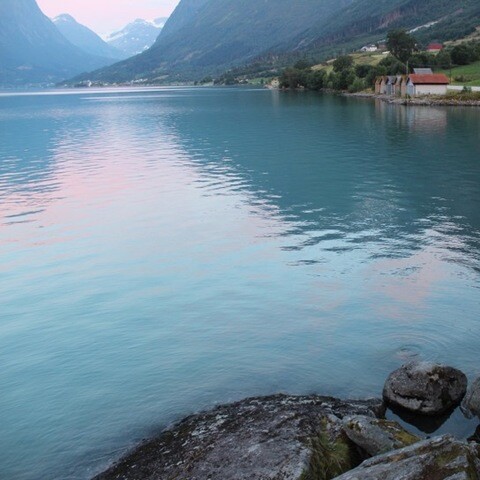MR says: Everyone struggles with their faith or with doubt at times. But when questions arise, how we talk about those questions can change our entire outlook.
In the year since our road trip through Norway with my husband and two small children, a moment, so brief I almost wonder if it really happened, comes floating back to me often. It was early morning and we were driving on the high planes beyond the fjords. The lighting was hazy and pink, as if the sun knew it hadn't had a proper rest, and I felt much the same way. I looked up and out the window at one point just in time to see two moose with heads bent to the ground, the morning fog tucked softly around them. Their largeness, otherworldliness and serenity shocked me. The image passed too quickly to even form words to tell my husband, but still, I cannot shake it. I've wondered why the memory, even at the time, felt so significant, except that I knew my accompanying emotion at the time was panic. Internal panic at what I perceived to be the pinnacle of a spiritual crisis--A crisis of faith.
Earlier that day, staring into the thick, wise turquoise water of the fjords, I had felt so small, so rough and lazy in my knowledge and so presumptuous in truly believing that I knew much of anything. I felt anxiety over feeling trapped in the gospel I had once felt entirely comfortable in. I pulled over and asked my husband to drive. The expansiveness and beauty of the world I was experiencing could not equate to me saying that I knew anything for sure, let alone the truths and solved mysteries I believed the doctrines of the church were asking me to claim. When I think back to that week in the back country of Norway, my heart jumps across the chasm of two different camps--one of complete awe and joy at the world around me and one, a culminating and complete crisis of faith. In the time since though, I've also asked myself this: What if it weren't a crisis? What if I had merely chosen different language to sculpt my experience? Would the chasm have lessened? Would I realize that both camps were actually not so different? What if when we entered the inevitable time when we must take our faith out of the pack on our back to really examine it were just that, an examination, a curiosity, a responsibility, a hope to better understand?

